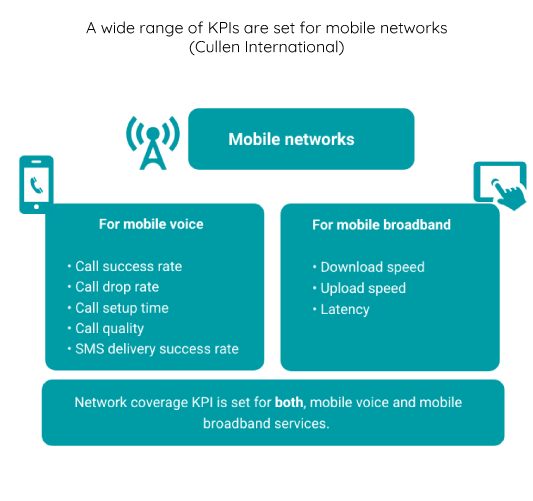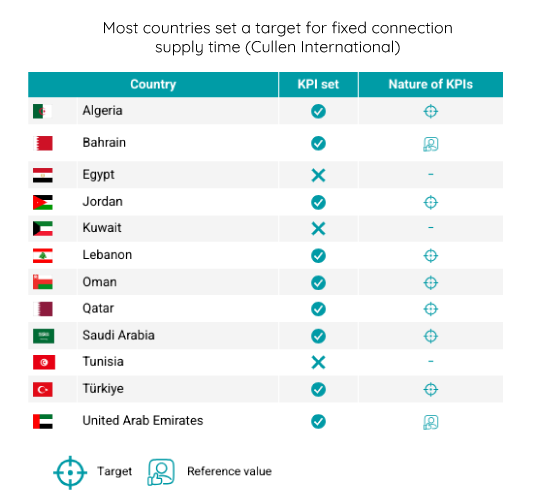Telecoms regulators in all MENA countries define key performance indicators (KPIs) to measure the quality of the telecommunications services provided to consumers.
However, while most regulators set performance targets that operators must achieve, in Bahrain and the United Arab Emirates, regulators only define reference values rather than binding targets.
The latest update of Cullen International’s benchmark on quality of service (QoS) provides detailed data on the QoS targets set in 12 studied Middle East and North African countries.

KPIs for fixed networks are generally similar to those used for mobile networks but with a few differences. Some indicators are specific to the type of network, such as SMS delivery time which applies only to mobile networks and fixed connection supply time which is specific to fixed networks.

Cullen International’s QoS benchmark provides details on the regulatory framework for QoS for voice and data services provided over mobile and fixed networks. It also covers how QoS is measured and reported, how targets are set, and the penalties that are applied when operators fail to meet the KPIs.
For more information and access to the full benchmark, please click on “Access the full content” - or on “Request Access”, in case you are not subscribed to our MENA Telecoms service.
more news
10 October 25
Spectrum and satellite policy changes and telecoms service deregulation among the main regulatory developments in the LATAM market
Significant regulatory developments have taken place in Latin America (LATAM) in the past three months, affecting spectrum and satellite policies, the deregulation of wholesale and retail services, and new measures to promote the universal service.
09 October 25
Largest GHG emitting countries fail to submit climate plans in time
Our latest benchmark shows the emission reduction targets for 2030 and 2035 of the ten largest emitters of greenhouse gases (GHGs), plus the EU and the UK, based on their latest available nationally determined contributions (NDCs).
08 October 25
19 EU countries mandate the registration of prepaid customers
Our latest benchmark shows whether, in selected European countries, mobile service providers are required to register the personal details of their prepaid end users.